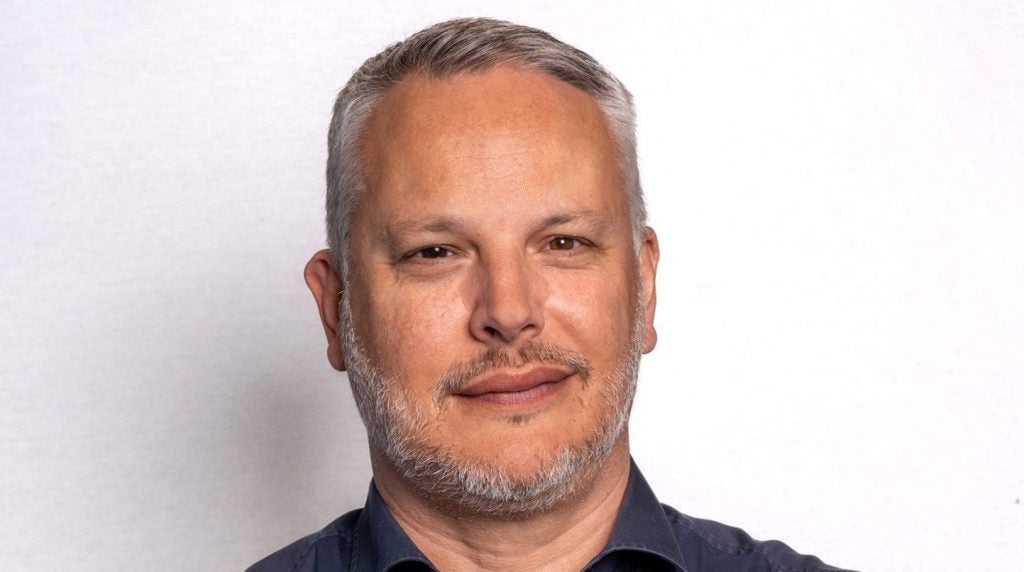
Asset finance and motor finance recruiter Oakland Partnership grew by 52% year-on-year in the 2013-2014 period according to managing director Tom White.
The firm’s "excellent" results White puts down to the "hard working and loyal team" at the Partnership and a healthy mix of new business and word-of-mouth recommendations.
"We’ve had new clients regularly approaching us this year asking us to work with them, which is something that didn’t happen so often historically," said White.
"Funders and brokers who’ve been disillusioned with their current recruitment experience now approach us regularly and that’s nice to see. And we’ve had a lot of candidates approach us as well, often on the recommendation of colleagues who’ve met with us or secured roles through us."
The Oakland Partnership’s successful results also reflect the growing interest in the asset finance market, from investment to new entrants to the new market. Leasing Life spoke to White for a Q&A session.
What’s the atmosphere like in the market right now?
How well do you really know your competitors?
Access the most comprehensive Company Profiles on the market, powered by GlobalData. Save hours of research. Gain competitive edge.

Thank you!
Your download email will arrive shortly
Not ready to buy yet? Download a free sample
We are confident about the unique quality of our Company Profiles. However, we want you to make the most beneficial decision for your business, so we offer a free sample that you can download by submitting the below form
By GlobalDataThere are a lot of new companies that have come into the market, and we’re working with quite a few of those. The general feeling is that asset finance is the flavour of the month at the moment. Companies, who were in it in a small way, are now looking to grow even more substantially and quite aggressively in some cases. And those who weren’t in it at all are now seeing it as a good vehicle and a way to utilise their funds.
Most of the new players have been banks or bank-backed. But there have been one or two independents, and some of the small independent funders are growing significantly right now. Certainly, as far as the market is concerned, it’s the best it’s been for seven years or so.
Are there any areas doing especially well in terms of job disciplines or asset classes?
We’re seeing a bit more green energy finance. So things like the BigBelly solar bins you’re seeing on the high street. One or two funders have gone into green equipment in quite a big way, and are looking to do more. Others take the view that it won’t sustain and it’s a fad that will pass. But it’s an area that’s been notably growing.
In terms of where there’s a shortage of good candidates: I think everywhere, but motor finance, in particular, is finding getting good-quality credit underwriters very difficult right now, especially in smaller business where it’s not all completely computerised. So where they want someone who can pull apart a set of accounts and look for what might be hidden, it’s very difficult to find really good experienced credit analysts. This is because so many of the larger organisations, both in motor and asset finance, don’t train them that way now. They computerise so much of it that there aren’t many good people coming through having been properly trained in areas like credit.
So what we tend to find is that to fill those roles we’ll often recruit from places like Australia, New Zealand or South Africa. Because they’re still trained properly out there. The language is also no issue, so, as long as they’ve got the correct working visas, that’s quite a good source for us to find people who can be difficult to find in the UK.
Where are these new staff coming from?
From their competitors. A lot of the new players coming in are having to pay a bit more in order to get people from competitors. So if the standard salary for a good credit analyst was, say, £55k, they’re coming in paying £60-65k. That’s generally what they’ve done or they’ve been able to attract people drawn to the entrepreneurial part of it.
So, for example, some of the large bank-owned funders are big lumbering organisations where the staff often feel like a number and don’t really see how their hard work affects the bottom line. Some of these staff like the idea of working somewhere which is buzzy, moving forward quickly and is more entrepreneurial, because they can be far more central to the organisation’s success. Even if it requires taking a bit of a drop in salary.
Going back to Lombard – there has been a lot of change at the business. And we know RBS had some restructuring last year. What have you seen of this?
They made a whole layer of people redundant because they wanted to move certain functions to Rotherham. They have a position across the business, nationwide, called assistant relationship manager and virtually all of those were made redundant at the same time. That amounted to a substantial number of similar candidates all being displaced at the same time
I think there were also people in other areas who saw other people leave and then do much better, who were then inclined to look to move on. They have a lot of long servers at Lombard, some of whom are very marketable and very placeable, but some others, on the sales side, who are not always so much so. This is because they’re considered, rightly or wrongly, to be cushioned at Lombard – leads come from the bank, and they sell at low rates. So in areas like sales some of them can be difficult to place – not all of them, mind.
Is this in contrast to ING?
The ING people were different. The difficulty ING people had was they were paid very well. Not just as basic salaries – though these were good – but as bonuses. A lot of their people were on 25-35% bonuses. So when you added their whole package together, yes they were good people, but they were paid well above market rate. I would say about two-thirds of the people who left ING have taken a lesser package in their next role.
What have you seen from GE since their announcement?
A lot of people on the phone, a lot of uncertainty. When the announcement was made we had a good dozen or 20 calls from people looking to explore what the market had to offer. What we’ve been told now by some candidates is GE has said they will make a proper announcement, a formal announcement, as to who is affected and who is not by July. That hasn’t helped a great deal because it’s left people in limbo a little bit.
People don’t know whether to hang on and wait for redundancy if they’ve been there for a long time or get out now before the big cull comes. If everybody goes at the same time, there’s going to be an awful lot of GE people flooding the market.
So some of the people are taking the view that if they’ve only been there for three or four years their redundancy won’t be huge, so they’ll get out now and secure something rather than wait until the summer when they fear there will be more GE people out there.
I think it was quite unforeseen, and I think it’s been quite a shock to a lot of people. I think some people are a bit dazed and don’t know what to think about it.
Was this down to regulatory changes in the US?
So I understand. It’s not something anybody over here anticipated. It’s the price you pay if you work for a big international organisation. No matter how well you’re doing, someone could flick a switch and it’s just game over. It’s not dissimilar to what happened with ING and Universal Leasing before them.
When the FCA came about, there was a lot of talk of having to hire new compliance guys, and other leaving the industry rather than deal with all the regulation. Did you see this?
The effect has been nowhere near as big as some people predicted. The need to recruit compliance people, yes, there’s been a bit of an uptake on that. But equally there haven’t been that many looking to leave either.
There were a lot of people who threw their arms up and said this isn’t going to be worth it. But actually, if your career is in compliance, you’re not going to walk away because new regulation has come in. I say it had little effect; I wouldn’t say it had no effect.
There aren’t a lot of women in general leasing. Is this from supply or incentive?
I think it’s largely that the finance industry has always been quite a male-dominated industry. In asset finance it’s around 60% male to 40% female, or maybe 65-35. And we will see more people at a senior level within asset finance who are female.
For people looking to break into the industry, what would be your advice?
Research the industry and understand what it is first. I think one of the great shames of leasing is that there is very little publicity given to it and little training done. I don’t think I’ve met a graduate that has come out of university and said I want to go into asset finance, in my 20 years of doing this job. They just don’t know about it; that it exists.
So if you want to go into it, first research it well and understand that there are vastly different businesses out there, and have good reasons for why you want to go into it. Some young people can come across like they’re just trying to get any old job. Try and be as sure as you can that you know which aspect appeals to you – do you want a sales role; do you want to be in a heads down, back office role; do you want to be out and about meeting people, and so on.
All these things are part of the thought process someone should go through, because it’ll make them a much more credible candidate. But the key thing is to do the research and try and understand the industry rather than just generally say they want to go into asset finance but not really know what it is.
Also be willing to start at a relatively low level. You might go in at an admin role, supporting a sales team, even if you’re a graduate, because you’re going to need to learn the industry. But I’d encourage people to do it, and companies like Close Brothers are launching a training programme later this year to get people into the industry because there’s very little done to attract new blood into the industry. They have to be applauded for that because without that type of initiative it tends to be the same old names going around and around.
What’s been happening with your own team recently?
The team is growing fairly significantly. We just recruited an additional account manager and will be bringing another one on-board later this year. It’s a small tight-knit team, and we’re going to be looking to grow in terms of staff numbers and in terms of turnover and financial results.







